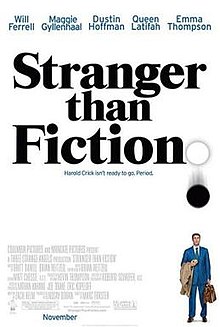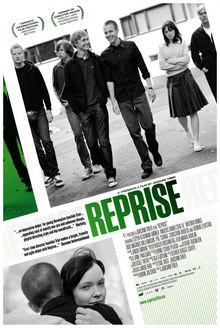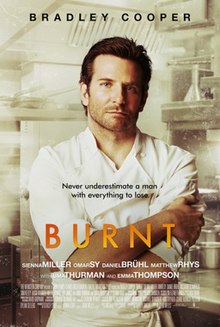
Released: November 25th,
2015
Rated: PG-13
Distributor: Warner Bros.
Starring: Michael B. Jordan, Sylvester Stallone,
Tessa Thompson, Phylicia Rashad
Directed by: Ryan Coogler
Written by: Ryan Coogler, Aaron Covington
Personal Bias Alert: never seen a Rocky film
7.8 of 10
It
seems that in 2015, the 7th time’s the charm. Furious
7 racked up money and praise back in April, and Creed appears to be going in the same direction. Oddly, both films find their series at tricky
crossroads, unable to continue as they had before. The Fast
and Furious series lost one of its stars.
Creed must admit that Rocky
Balboa (Sylvester Stallone) can no longer box.
The magnitude of these changes cannot be understated, and if nothing
else, both series have seized the moment and delivered a crowd-pleasing entry
for their die-hard fans.
In Creed, the baton is passed from Rocky to
Creed’s illegitimate son, Adonis (Michael B. Jordan). Adonis is trying to prove himself without
using his father’s reputation, making his way under the surname Johnson. Of course, the illegitimate tag gnaws at him,
and he’s angered at the thought of taking the name of a man he never met. This doesn’t stop him from taking advantage
of the connection to get Rocky in his corner, though (a contradiction that is
thankful acknowledged), and the two form a relationship far beyond that of
coach and trainee.
The
formula for the Rocky movies have
always been well-worn, and Creed does
nothing to change that. We know all
along that Rocky and Adonis will form a close relationship, that complications
will arise, and then a big fight will bring them back together. Like all great sports movies, the winning and
losing isn’t what it’s all about. The
fight is symbolic, and unfortunately for Creed,
that symbol is its weakest link. The
film’s metaphor is too simple and too clean to knock you out, a misstep that is
a holdover from writer/director Ryan Coogler’s previous film, Fruitvale Station. Neither film is sunk by this simplicity, but
it’s more apparent in this drug out behemoth.
There’s just too much tire-spinning, too many moments of macho men
acting out, and yes, too many training montages. If these moments had built on each other to
complicate the core relationship then we’d be having an entirely different
conversation, but the film uses them only to pound down the same points,
leaving the middle section feeling a bit weary.
Still,
complicated is not a defining word of the Rocky
series, and fans that are turning up for a good-ole underdog story won’t be
disappointed. Jordan turns in an
effervescent performance as Adonis, showing that he’s more than capable of
carrying the sweat and the charm of the series.
Stallone is as comfortable as he’ll ever be in a role, and even if he’s
not your cup of tea (he’s certainly not mine), it’s hard to argue against such
a solid performance. You’re third lead
here would have to be Tessa Thompson, another charismatic actor that, like
Jordan, has unfortunately been held back by the color of her skin. Both should be much bigger stars than they
are, and perhaps the best thing about Creed
is that the continued series should become a career stabilizer for both of
them. Thompson plays Adonis’s love
interest, a role that starts out as touchingly well-rounded but unfortunately
fades. And yet, Thompson and Jordan give
such excellent performances that their relationship always works, and it will
be a pleasure to see where they, along with Sly’s Rocky, end up next.
What
separates Creed from the sports movie
pack is just how well it’s made, partially thanks to the performances that have
already been outlined and partially because of Coogler’s direction. His faults as a writer aside, Coogler is an
unusually assured young filmmaker, taking chances here that mostly pay off in a
beautiful and moving film. The camera
swirls, ducks, and pounds with the fighters, and the score goes big and
sweeping. In spite of the film’s
simplicity, Coogler will play your emotions like a fiddle, and that last fight
will certainly leave you feeling something, even if it does fall short of the
genre’s legends.
Coogler
has made Creed into a reboot worthy
of continued entries. There are aspects
of these characters that would be interesting to explore, and Jordan and
Thompson prove to be a duo that will be exciting to watch well into the future. It’s a rousing success for a very simple
franchise and a tantalizing taste of what it’s capable of becoming.
Other Notes:
Ø Obviously,
Rocky is not a series that speaks to
me. That I responded to this film as
much as I did is pretty remarkable.
Ø This
gets my nomination for Funniest Performance by a Turtle.
Ø I
do sincerely applaud this series for willingly shifting its focus to non-white
people. I have full confidence that audiences
will continue to shell out money no matter the color of the actors onscreen.









